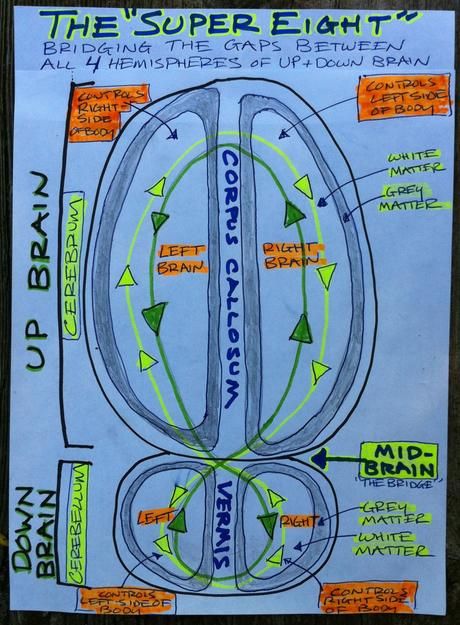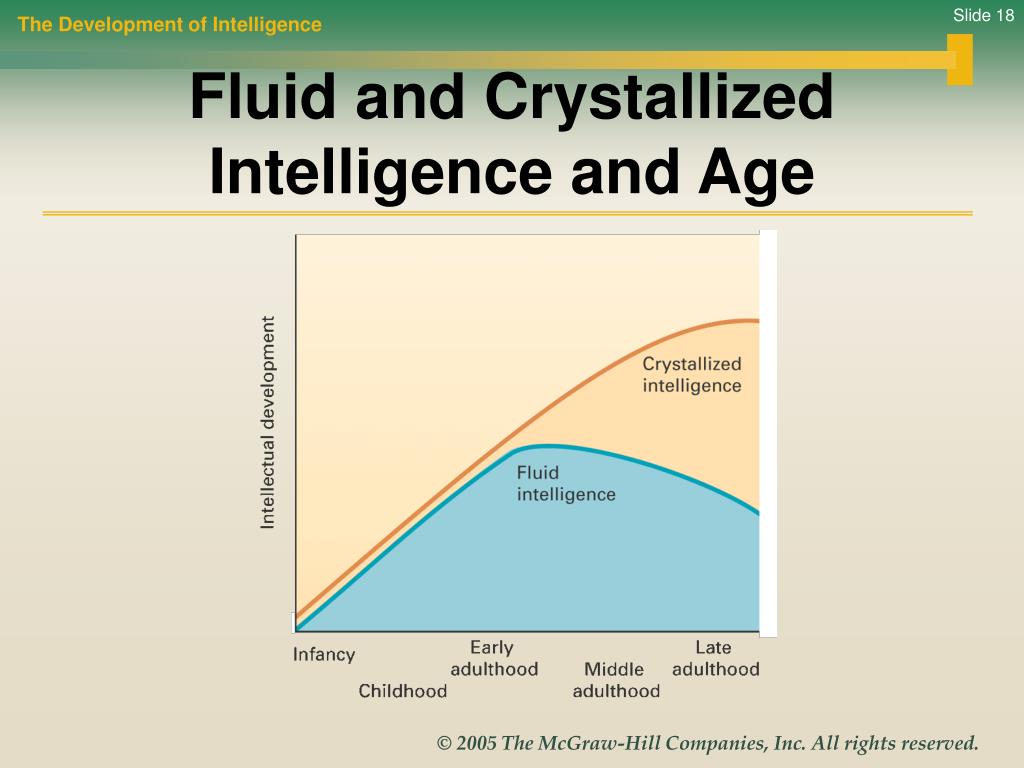

Fluid reasoning slowly declines through adulthood, mainly due to changes in the brain due to aging.


Unlike crystallized intelligence, which improves steadily over time, the fluid intelligence peak is typically in early adulthood, around age 20. The person likely knew a little bit about how sorting works (put similar items together, etc.), and even knowing the definition of the word "sorting" relies on crystallized intelligence.
#Fluid intelligence consists of how to
Even though we didn't give the person instructions on how to complete the task, crystallized intelligence was still involved. In reality, fluid intelligence and crystallized intelligence are always used together, often referred to as fluid vs crystallized intelligence. The person must examine the similarities and differences between the marbles and engage in problem-solving and critical thinking to figure out where they should be placed. In our example, the person is given no additional information besides the direction to "sort the marbles." Deciding how the marbles should be categorized and the best method to sort them relies heavily on fluid intelligence. We could give this person instructions on how to sort the marbles, but that forces the person to rely on existing knowledge, a component of crystallized intelligence. The marbles are a variety of colors and shapes, and for the sake of this example, this person has never sorted marbles before.

Imagine a person is asked to sort a bucket of marbles. Fluid Intelligenceįluid intelligence involves a person's ability to solve new and unfamiliar problems, which is distinct from crystallized intelligence. They have transferred the knowledge of that disease from medical literature to their personal encyclopedia, increasing their crystallized intelligence. After years of treating that disease, the doctor likely relies more on their own intuition than medical texts and resources. As an example, consider a doctor who specializes in a particular disease. When people solve a problem using crystallized intelligence, they look up facts and information in their personal encyclopedia. Although crystallized intelligence and long-term memory are not synonymous, they are very similar concepts.Ĭrystallized intelligence is basically a person's "encyclopedia." It represents the bundled knowledge they have gained over the years, including everything from advanced concepts taught in school to basic knowledge like "birds have feathers." Because people continue to learn throughout their entire lives, crystallized intelligence increases the longer a person has been alive, resulting in higher crystallized intelligence. The phrase "long-term memory" is often associated with crystallized intelligence. When psychologists and researchers speak about crystallized intelligence, they are referring to a person's ability to apply previously acquired knowledge or prior learning to a problem in front of them. Crystallized IntelligenceĬrystallized intelligence refers to the accumulated knowledge a person can retain. Today's researchers and psychologists recognize the complexity of intelligence and cognition and generally break down a person's cognitive skills into three broad categories: crystallized intelligence refers to accumulated knowledge fluid intelligence refers to problem-solving and adapting to new situations and working memory. That effort has been mostly unsuccessful. In years prior, researchers attempted to reduce a person's potential to a single score, the intelligence quotient (IQ). It is important to note that "intelligent" is not synonymous with "smart" or other positive descriptions of a person's aptitude. Research into new methods of intelligence testing has spurred numerous studies that attempt to understand precisely what makes a person intelligent and how to measure fluid intelligence and crystallized intelligence. Since that time, intelligence testing has evolved drastically, incorporating concepts such as fluid and crystallized intelligence. The first intelligence test used in America, "The Binet and Simon Tests of Intellectual Capacity," began its rise in popularity in 1908. The subject of human intelligence has been under investigation by cognitive psychology experts for well over a century.


 0 kommentar(er)
0 kommentar(er)
